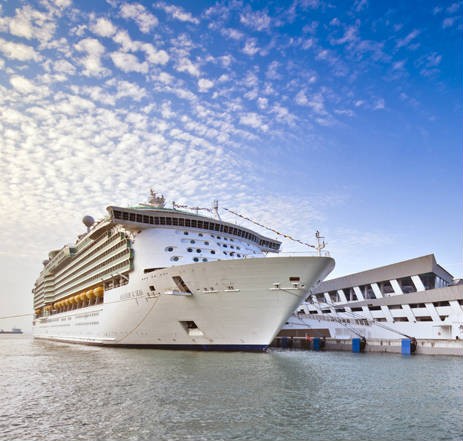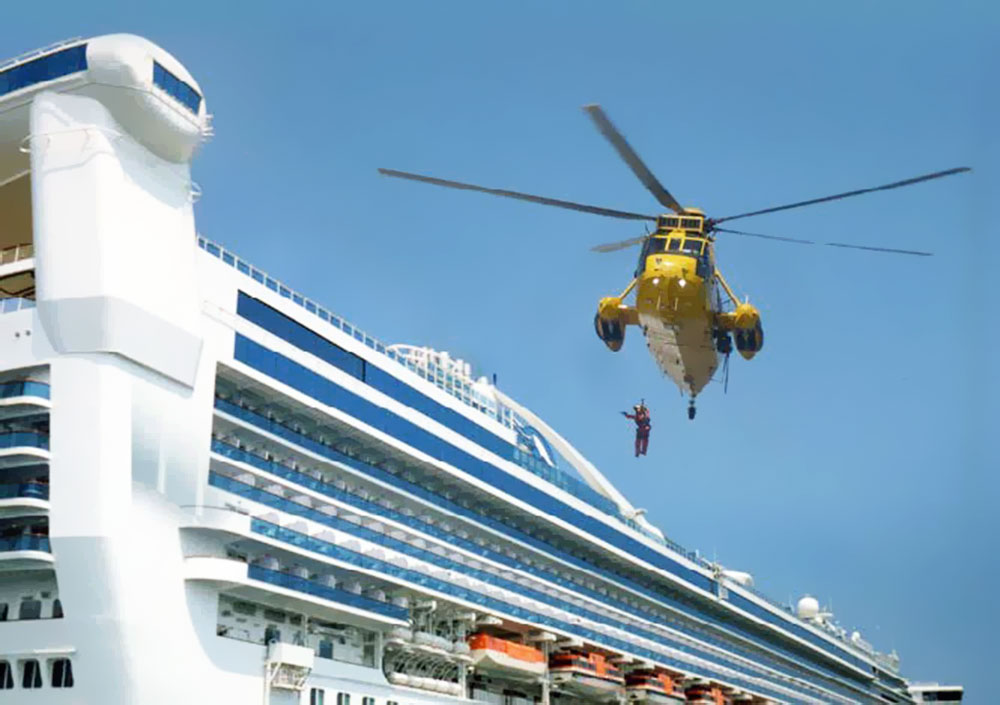
USPH Training is a course that will enable you to obtain certification in food safety. This course includes both theoretical as well practical training. This course is open to all service and hotel personnel. Each class will be limited to 24 students and minimum 12. You will receive a Certificate upon successful completion.
Crew Steward
A crew steward is responsible for serving passengers, as well as ensuring safety and cleanliness in the dining area and mess. They must also attend regular USPH training and attend meetings with the housekeeping manager. They must be friendly and service-minded. They must be able to work well in a team and communicate effectively with cabin stewards.
A ship's steward is a varied role. They may work on either a large cruise ship, or small fishing boat. While this position does not require a license, there are many ships that require culinary training. The average annual salary for a Steward is around $32,637
Provision Master
The Provision Master reports directly to the F&B director and is responsible for overseeing the Provisions team onboard. His duties include managing inventory, maintaining a professional environment, and making recommendations for corrective action. The job description can vary depending on where you are located, but will require an in-depth knowledge of USPH standards, as well as good management practices.

These are the responsibilities of the Provision Master. They monitor inventory levels and record all transactions. They must also oversee issues related to aging, breakage, and spoilage, and reconcile these levels with the inventory management system. This position requires an educational background in food service, although previous restaurant management experience is also required. In order to qualify, students should have at least three years of relevant experience in a restaurant.
Pastry chef
A host of duties are entrusted to pastry chefs in hospitality establishments. Pastry chefs are responsible for preparing food and desserts. They also have to ensure that sanitary practices and recipes are adhered to. They must prepare electronic requisitions daily and maintain all equipment, supplies, and other items distributed to staff.
Pastry chefs also need to be knowledgeable about food safety and sanitation. They must also be able perform daily USPH inspections on all F&B areas of a ship. These professionals are typically required to have at minimum five years' experience working in a large restaurant or on a cruise ship.
Pastry chef on Astro Cruises
You'll have the chance to create delicious desserts as a pastry chef aboard a luxury cruise. You will be responsible for all aspects of food preparation and safety. Pastry chefs are required to meet all safety regulations and environmental guidelines, and must also adhere to all guidelines and procedures established by the company or governmental agency.
Astro Cruises will provide you with a training program if you're considering a career in the field. This course will provide you with a series workshops and classes on how to be a pastry chef. This course will teach you everything, from basic pastry skills to advanced techniques. This will allow you to be a great pastry chef while on a cruise.

Crew Steward responsibilities
You are a crew member steward and have many responsibilities. Your duties include maintaining good morale and teamwork on board the ship. Crew members must be polite to one another, listen to their requirements, and be available for all requests. You will also be required to assist at loading and provisioning. Safety regulations and training are essential.
Crew stewards will ensure that the passenger and galley areas are clean and safe. This includes cleaning guest cabins of toilets and sinks as well maintaining the cleanliness inside lockers and bathrooms. Additionally, you will need to use personal protective equipment like a safety helmet. You will be expected to keep the working areas clean and organized, and report any maintenance issues to the cabin steward. Other responsibilities include helping new crew members to train.
FAQ
How does cruising work?
The deposit, usually $50-$100, is required when you book a cruise. Your balance is due 30 days before departure. Check into your cabin after you arrive at port. You can then take part in any of the onboard activities.
What do you get on your cruise?
Fun is the most important thing. There's no need to be too serious - just have fun.
There will be plenty of activities to suit everyone's interests. Even if you're feeling bored, you can always find someone to talk with.
Cruising should be about relaxation and having fun. Cruising is not about seeing as many places as possible.
There are many types of cruises available. They range from shorter trips across Europe to more extended journeys across the Pacific. The length of the trip will depend on what you are looking to do during your vacation.
Which type of cabin should I choose?
It is important to consider the space you require when you choose a cabin. Do you feel comfortable sharing a bathroom? Would you prefer a private bathroom? Do you value noise? Is it important to you that you spend more time in the stateroom or the dining area? Also consider whether you desire an interior view, or a balcony. Balconies offer more space but can sometimes be noisy. Interior views are generally quieter than balconies.
Where do cruises get started?
Cruise vacations typically begin in Miami, Florida. Because it is home to both international airports as well as ports, cruises depart from Miami. These two locations allow passengers to explore the rest of South America and Europe.
Statistics
- In addition, 10 to 15 percent gratuity is typically added to bar bills — for alcohol and soft drinks — and gratuities are applied to spa treatments. (cruiseline.com)
- The line estimates savings of 50% when you purchase this bundle. (travel.usnews.com)
- *20% Gratuities Apply on Free Unlimited Open Bar; Free Specialty Dining. (ncl.com)
- If you're traveling alone, you may also need to factor in a single supplement, adding up to as much as 100% of the cruise fare. (travel.usnews.com)
External Links
How To
How do I plan my first Cruise?
A cruise planning process is similar to any other trip. There are many things you need to consider such as where to go and what activities to include, costing, and budgeting. You should be aware that there are important differences in the planning of your first cruise, especially if this is your first time. You won't want anything to miss because cruises are typically longer than land vacations (upto 3 weeks). Here are some tips to help make this vacation even easier:
-
Start early - Book your cruise at least 6 months before departure. You can save money and avoid crowds by booking early. Also, you'll have plenty time to research your ship, itinerary, ports and activities. You may even be able to find a bargain on airfare.
-
Choose a destination - It doesn't matter which port you choose; just pick one that appeals to you. Many reasons people enjoy cruising to different places. Some love to travel while others prefer to relax and unwind on the boat. No matter what your preference, remember that you must consider the destination you want to visit. The Caribbean is the most popular destination, followed closely by Europe or Alaska.
-
Consider booking a suite - If money isn't an issue, book a suite. Suites include extra space, a private terrace, and additional amenities. These rooms are generally available for $100-$300 per evening, depending on how big your room is and if there are any suites available during your sailing date.
-
Check the weather forecast. Cruising can often be associated with warm tropical environments. But, make sure to check the weather forecasts on the days you'll visit the ports. The weather can be unpredictable, especially in Antarctica. It is best to find out what the forecasts are before you book your cruise.
-
Pack light - When packing for your cruise, limit yourself to only 10 items. No need to take too many clothes or shoes with you. Pack everything in small bags that you can carry on. You should also bring layers of clothing as you may not always have access to laundry facilities.
-
Do your homework - Before you buy tickets, read reviews online. Check out their cancellation policies and pricing.
-
These must-see locations are not to be missed. Make sure to visit each port at the very least once. Each has its unique charm and culture, so take advantage of all the local sites.